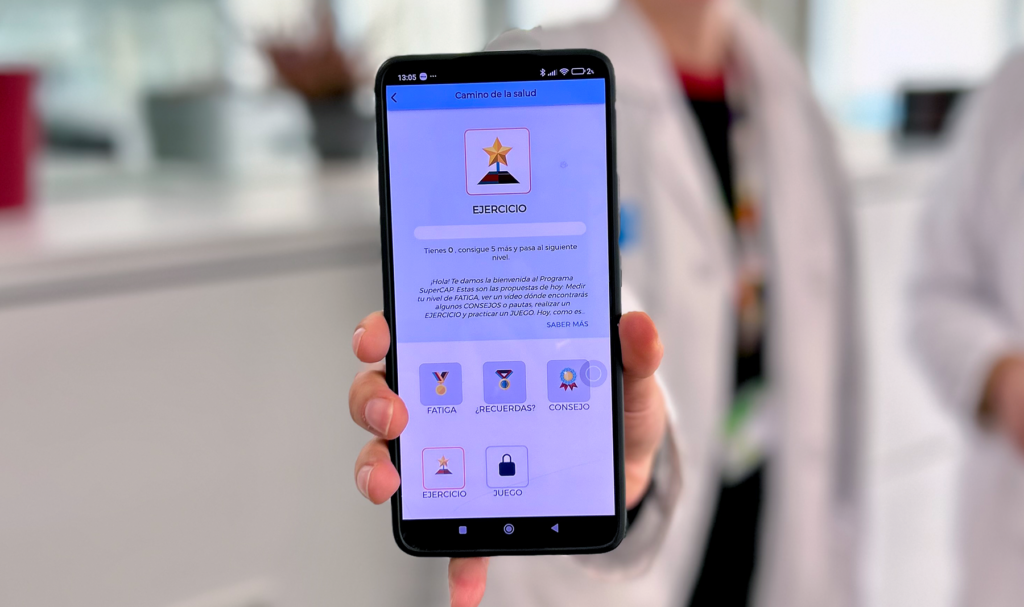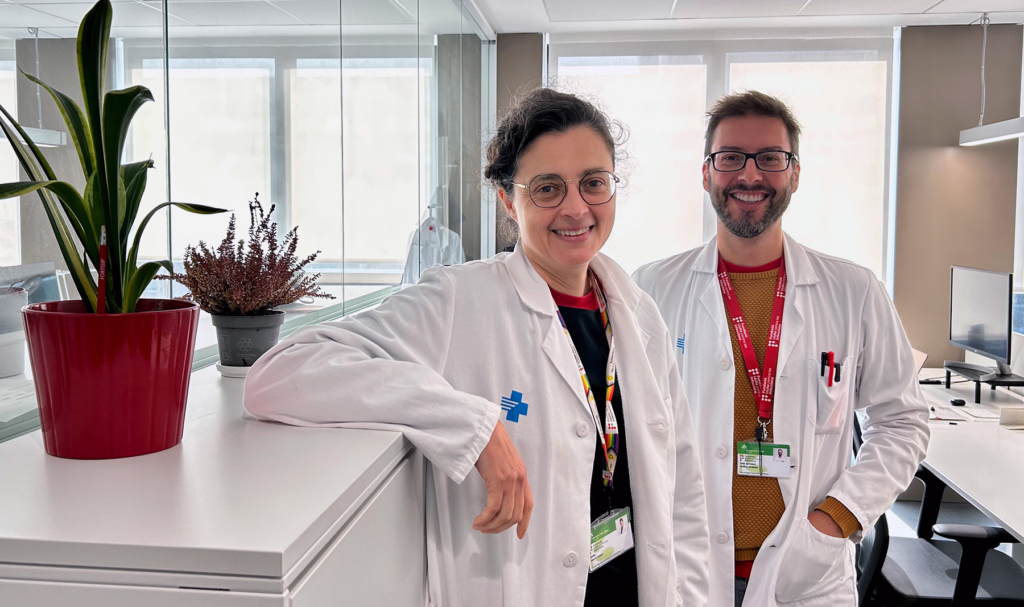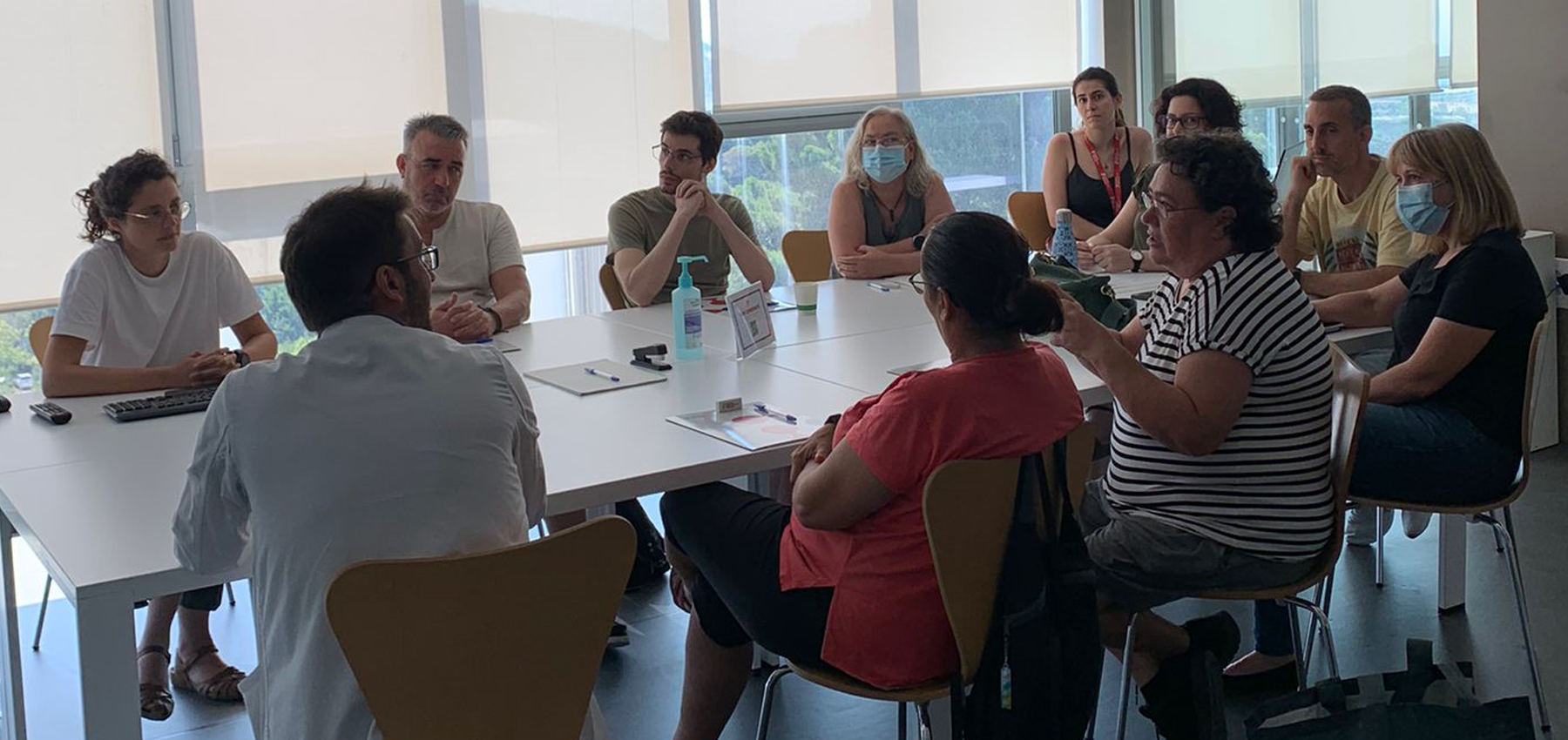More than 120 people have participated in our Sant Jordi initiative
28/04/2025
Long COVID syndrome is a multisystem disease that can appear after contracting SARS-CoV-2 infection. Studies show that approximately 10% of people infected with SARS-CoV-2 develop it. According to data from the Department of Health, 15,559 cases of long COVID have been diagnosed in Catalonia, of which 13,672 are still active. This disease, often very disabling, predominantly affects women, with an average age between 40-50 years, who have had an acute infection that has not required hospital admission. One of the most frequent, disabling and difficult-to-manage symptoms are fatigue and cognitive disorders.
New technologies can help improve the care of people with various chronic diseases. For this reason, the Catalan Institute of Health has launched the eSalut platform where users, through a mobile application, can receive information, advice, guidelines and personalized exercises to improve or help manage their symptoms.
The Fight Infections Foundation and the Germans Trias i Pujol University Hospital, in collaboration with Diari ARA, the Obra Social “La Caixa” Foundation and the Catalan Health Institute, have developed a specific programme within the eSalut platform to improve the daily functioning and quality of life of people who live with cognitive and fatigue symptoms associated with Persistent COVID, the SuperCAP programme, which is a digital application that improves the cognitive difficulties of people with persistent COVID.

Symptoms of long COVID can vary widely and include extreme fatigue, breathing difficulties, headaches, cardiovascular problems, muscle and joint pain, among others. Mental health problems may also appear, such as memory loss, mental confusion (known as “brain fog”), anxiety, depression, or sleep disturbances.
This condition can affect anyone who has had COVID-19, regardless of the severity of initial symptoms. Research continues to evolve to better understand this syndrome and find effective treatment options, as it is unknown exactly why some people develop long COVID while others do not. Medical care and emotional support are essential for those affected.
This project aims to design and evaluate the effectiveness of the SuperCAP program, proposed with the intention of improving the cognitive, emotional and functional status of people with persistent COVID. The project is developed in two phases.
In many cases, an intervention may not be well received by all patients due to various factors such as complexity in administration or simply because it does not align with users’ expectations and preferences. Testing the intervention on a small, representative sample allows researchers to obtain valuable feedback that will allow them to adjust and optimize the approach before its mass implementation.
The second phase consists of an efficacy study designed as a clinical trial to evaluate a non-pharmacological intervention. In this trial, people with persistent COVID and cognitive difficulties will be followed for 6 months and randomly assigned to different intervention groups. A control group will also be followed to compare the results and evaluate the effectiveness of the program.

28/04/2025
14/04/2025
14/02/2025

Share